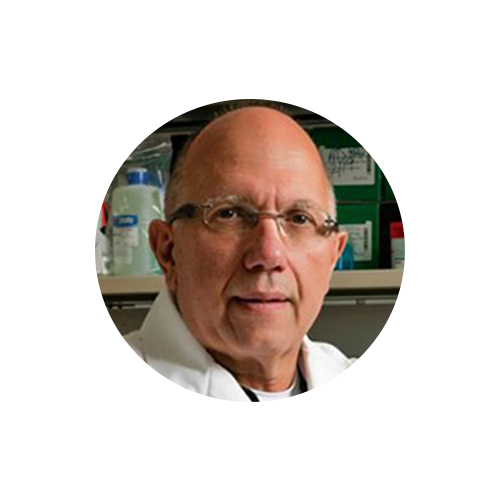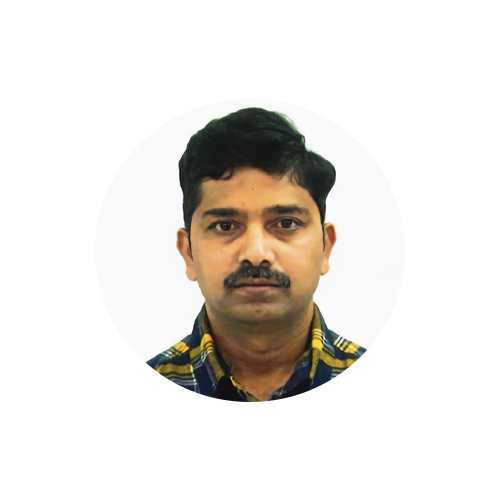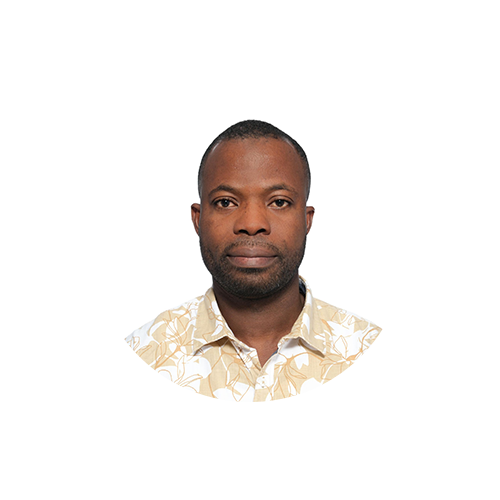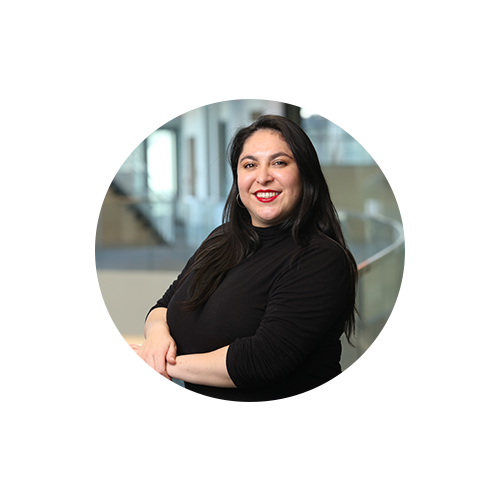Principal Investigator

Rafick Pierre Sekaly, PhD
Professor & Vice-Chair of Translational Medicine
Director of Pathology Advanced Translational Research Unit
Emory Vaccine Center
Department of Pathology & Laboratory Medicine
View Faculty Profile | Publications
Rafick Sekaly, obtained a PhD in Biochemistry, from the University of Lausanne and the Ludwig Institute for Cancer Research, Switzerland.
He comes to Emory from Case Western Reserve University, where he was Richard J. Fasenmyer Professor of Immunopathogenesis, co-director of the Center of Systems Immunology, and co-leader of Case Western’s COVID-19 task force.
Sekaly is one of the world’s leading researchers focused on a cure for HIV/AIDS and has led fundamental work on the persistence of the HIV reservoir and progression of HIV infection. For clinical trials, he has partnered with companies using gene therapy to make immune cells resistant to HIV. Sekaly’s lab has also pioneered the use of comprehensive systems approaches to study immune memory and immune responses to vaccines.
From 2009 to 2014, Sekaly was scientific director of the Vaccine and Gene Therapy Institute in Florida and was previously based at the University of Montreal and McGill.
RESEARCH INTERESTS
Dr. Sekaly’s focus on HIV disease immune pathogenesis, immune virology, and immunotherapies has generated pioneering findings that highlight the impact of HIV infection on thymic output, T cell memory, mechanisms of CD4 and CD8 T cell dysfunction, and on innate immunity and mechanisms of HIV persistence. He has also pioneered the use of transcriptomics and bioinformatics to identify predictors/correlates of immune responses that lead to protection from viral infections, including HIV, SIV and flaviviruses, protection from disease progression and successful immune interventions including adjuvants, licensed preventative and therapeutic vaccines.
He is the principal investigator on numerous grants from the National Institutes of Health, the Bill and Melinda Gates Foundation, the American Foundation for AIDS Research, the Fred Hutchinson Cancer Research Center, Gilead Sciences Incorporation, Merck Sharp & Dohme Corporation, and more. His research group has been continuously funded since 1988 by federal and nonfederal grants.
Dr. Sekaly’s efforts have resulted in novel approaches to cancer and HIV vaccines and have led to more than 357 peer-reviewed articles in scientific journals and 25 patents in Adjuvants, PD-1 and vaccine vectors.
Sekaly Lab Members

Joao Lima Calandrini de Azevedo PhD
Post Doctoral Fellow
Pathology Advanced Translational Research Unit
Department of Pathology & Laboratory Medicine
João Lucas Lima Calandrini de Azevedo, PhD, is a postdoctoral researcher in the Sekaly Lab at the Pathology Advanced Translational Research Unit (PATRU), Emory University. He earned his doctoral degree in Immunology from the University of Goiás (Brazil), where he focused on the transcriptomic features of HIV Elite Controllers and the role of host metabolism in controlling infection. At Emory, his research leverages systems immunology and single-cell multiomic approaches to investigate immune cell states associated with HIV persistence in elite controllers. His work integrates transcriptional, immunological, metabolic, and epigenetic data to uncover factors that drive or limit HIV progression. His broader research interests include trained immunity and epigenetic reprogramming in the context of viral control. Through his work, he aims to identify novel therapeutic targets that could support the development of future HIV cure strategies.

Narayanaiah Cheerdarla
Scientist, Asst (AR)
Pathology Advanced Translational Research Unit
Department of Pathology & Laboratory Medicine
Dr. Narayanaiah Cheedarla is an Academic Research Scientist in the Pathology and Advanced Translational Research Unit (PATRU) at Emory University, operating under the mentorship of Dr. Rafick Sekaly. He completed his Ph.D. in Biotechnology-Microbiology with a specialization in Immunology from the National Institute for Research in Tuberculosis (NIRT-ICMR), Chennai, India. His doctoral research investigated the host immune response to Human Immunodeficiency Virus type-1 and type-2, specifically identifying highly potent broadly cross-clade neutralizing antibodies (bNAbs) against HIV-1. Prior to his doctoral studies, Dr. Cheedarla commenced his scientific training in Molecular Virology at the Jawaharlal Nehru Centre for Advanced Scientific Research (JNCASR), Bangalore, India, where he established a strong foundational understanding of molecular biology, immunology, and host-pathogen interactions.
During the SARS-CoV-2 pandemic at Emory, Dr. Cheedarla was a key contributor to the development of COVID-19 vaccines utilizing MVA vectors and RBD-trimer proteins within Dr. Rama's laboratory. Concurrently, in Dr. Roback's laboratory, he investigated neutralizing antibody responses following SARS-CoV-2 vaccination in patient cohorts with Myeloma, sickle cell disease, and among pregnant women. He also developed an automated assay for detecting SARS-CoV-2 neutralizing antibodies targeting the pre-fusion state of the spike trimer protein. Currently, Dr. Cheedarla's research is dedicated to analyzing human hematopoietic stem cell (HSC) profiles in the context of HIV cure strategies. His work integrates advanced immune-technologies, high-dimensional immune profiling, single-cell transcriptomics, and multi-omics approaches to elucidate the role of HSC-associated cytokines and metabolites in controlling HIV infection.

Diego A. Diaz-Dinamarca, PhD
Post Doctoral Fellow
Pathology Advanced Translational Research Unit
Department of Pathology & Laboratory Medicine
Dr. Diego Diaz-Dinamarca holds a Ph.D. in Biochemistry from the University of Chile (2023) and a bachelor’s degree in Biochemistry from the Pontifical Catholic University of Valparaíso, Chile (2016). As an undergraduate, he studied the immunogenicity of antigens targeting Group B Streptococcus (GBS) and human metapneumovirus (hMPV).Dr. Diaz-Dinamarca investigates the epigenetic mechanisms underlying trained immunity, particularly those induced by immunomodulators and vaccine adjuvants. His work integrates bioinformatics with experimental immunology to uncover regulatory networks driving protective responses against viral infections, including HIV and SARS-CoV-2.tribute to knowledge improving vaccines and immunotherapies to combat virus infection diseases.
RESEARCH INTERESTS
Dr. Diego Diaz will study the training immunity mechanisms involved in immunomodulators and vaccine adjuvants to prevent viral infections as HIV and SARS-CoV-2, combining methods from bioinformatics with experimentally research.

Meghana Reddy Dropathi, MS
Bioinformatics Analyst, Sr
Pathology Advanced Translational Research Unit
Department of Pathology & Laboratory Medicine
Meghana Reddy Dropathi, M.S., Senior Bioinformatics Analyst obtained a Master of Science degree in Bioinformatics from Northeastern University in Boston, MA. During her time there, she studied computational biology, data engineering, and advanced bioinformatics methodologies. She also earned her Bachelor of Technology in Biotechnology. Previously, she investigated epitranscriptomic modifications and methylation patterns at The Institute for Experiential AI, where she developed comprehensive MeRIP-seq pipelines and implemented AI models for enhanced methylation analysis. She currently works as a Senior Bioinformatics Analyst in the Sekaly Lab at Emory University School of Medicine, where she joined in 2025, focusing on pathology research applications and single-cell data analysis. Her research interests encompass computational genomics, transcriptomics analysis, epigenetics, and immunology. She specializes in single-cell genomics, working extensively with single-cell data to understand cellular heterogeneity and regulatory mechanisms. Her current research interests include immunological mechanisms, epitranscriptomic modifications, cancer genomics, and the development of bioinformatics tools and pipelines for high-throughput sequencing data analysis. She focuses on RNA-seq analysis and the integration of multi-omics data to understand disease mechanisms and cellular regulatory processes.

Guilherme Toni Financi
Data Entry Specialist (ETS)
Pathology Advanced Translational Research Unit
Department of Pathology & Laboratory Medicine
Guilherme Toni Financi, Bachelor, obtained his Bachelor's degree in Psychology from Universidade Paulista in 2023. During his time, he studied the nuances of data collection, organization, and interpretation, and data analysis preparing him for the data environment.
Guilherme joined PATRU in 2024 as a Data Entry Specialist. Doing database management and information flow optimization.

Khader Ghneim, MSc, MBA
Director of Projects
Pathology Advanced Translational Research Unit
Department of Pathology & Laboratory Medicine
Khader Ghneim is a Bioinformatics and Data Scientist with 10+ years of experience. Khader obtained a Bachelor’s degree in Biology from the University of Florida. Upon completion of his Master’s degrees at Georgetown University, Khader began his career as a bioinformatics analyst at VGTI-FL then served as a senior bioinformatics scientist at Case Western Reserve University. Khader joined PATRU at Emory in 2021 and is currently the Director of Projects where he manages the bioinformatics group pipeline development, data analysis, curation, storage and distribution. Khader is also the Deputy Director of the Bioinformatics and Integrated Systems Biology (BISB) core for the Emory/Georgia Tuberculosis Research Advancement Center (TRAC).
Khader’s research utilizes a comprehensive Systems Biology approach to analyze and combine multi-omic datasets into integrative models that correlate with disease (Cancer, HIV) outcome and/or response to therapy. Khader’s experience includes but is not limited to the analysis of transcriptomic, metabolomic, proteomic, and high dimensional flow cytometry data-sets and the use of machine learning and meta-analysis algorithms. His current research is focused on understanding the host immune response to HIV infection and advancing the “HIV cure”, identifying underlying mechanisms that lead to the pathogenesis, establishment and persistence of the virus, and assessing broadly neutralizing antibody, system serology and vaccine immune responses.

Emmanuel Koomson, PhD
Post Doctoral Fellow
Pathology Advanced Translational Research Unit
Department of Pathology & Laboratory Medicine
Emmanuel obtained a BSc degree in Biochemistry from the University of Ghana, and a PhD in Biomedical Sciences from the City University of Hong Kong. For his PhD, he explored whether and how PD-1 signalling regulate trained. He then joined a Biotech Company in Hong Kong as a Research Scientist, developing mesenchymal stem cells and derived products for regenerative therapy.Emmanuel joined the Sekaly Lab/PATRU in 2025. Here, he and his colleagues are conducting research in human immunology to understand the regulation of innate immune responses by metabolites and the overall development of immune responses that can protect the host from HIV persistence.

Muhammad Bilal Latif, DVM, PhD
Visiting Fellow, Assistant Academic Research Scientist
Pathology Advanced Translational Research Unit
Department of Pathology & Laboratory Medicine
Dr. Bilal obtained DVM from the University of Veterinary and Animal Sciences, Lahore, Pakistan. He then moved to Sweden to obtain MS in Molecular Biology with a major in Biotechnology. For his career in research, he went on to earn a Ph.D. in Veterinary Sciences (Virology-Immunology) from the University of Liege, Belgium. During his Ph.D. with Dr. Laurent Gillet, he studied the role of the ORF63 gene of MuHV-4 in virus entry, exit, and immune evasion. He discovered that the ORF63 is required during entry for the transport of MuHV-4 capsids from the cell membrane to the nucleus of the host cell. For his postdoctoral training, he joined the laboratory of Prof. Ganes C. Sen at Lerner Research Institute, Cleveland Clinic. There, he studied the relative contribution of cGAS-STING and TLR3 pathways in attenuation of HSV-1 infection and discovered that they contribute differently in different cells. He joined the lab of Prof. Rafick-Pierre Sekaly in March 2020.
RESEARCH INTERESTS
Dr. Bilal’s current research interests include; studying the molecular mechanisms involved in HIV reservoir maintenance, studying the innate immune responses against SARS-CoV-2 infection, and developing the antiviral therapies.

Maha Moussa
Scientist Scientist, Sr. (AR)
Pathology Advanced Translational Research Unit
Department of Pathology & Laboratory Medicine
Dr. Maha Moussa obtained her PhD in Immunology/Virology at the University of Grenoble-Alpes (UGA, France), where she studied the immunogenicity of HIV DNA vaccines in the non-human primate (NHP) model under the supervision of Dr. Yahia Chebloune. Just after finishing her PhD, she joined UGA as teaching faculty before moving to the USA. She joined Georgetown University for her postdoctoral training focusing on checkpoint inhibitors and cytokines immunotherapies against HIV/SIV in NHP in the laboratory of Dr. Marta Catalfamo, and in cancer mouse models in the laboratory of Dr. Anton Wellstein. she next joined the National Cancer Institute at Frederick, working under the supervision of Dr. Barbara Felber on developing novel DNA vaccines, and cytokines-based immunotherapies against HIV. Dr. Moussa is currently a senior research scientist in the laboratory of Dr. Rafick-Pierre Sekaly where she is using cutting-edge technologies including flow cytometry, transcriptomics and proteomics to characterize anti-viral immunity. In this context, she focuses on trained innate-immunity and long-lasting adaptive immune responses. The main focus of Dr. Moussa’s research is to develop effective immunotherapies against chronic diseases, mainly HIV and cancer, and other emerging diseases.

Marthe Pauwels
Visiting Fellow
Pathology Advanced Translational Research Unit
Department of Pathology & Laboratory Medicine
Marthe Pauwels obtained a degree in Pharmaceutical and Biological Technology from Odisee University in Ghent. She later worked in the field of animal science, specifically in the virology department at Ghent University, where she investigated a broad spectrum of viruses. Her strong interest in molecular biology and sequencing led her to transition to a new innovative spin-off from Ghent University, focused on metagenomics and viral and bacterial typing using Nanopore Sequencing. In this role, she contributed to building the spin-off with a focus on research and development, wet lab automation, product development and automation, and the implementation of diagnostic workflows in international partner laboratories. She joined PARTRU as part of the Sekaly Lab in 2024 as a visiting fellow. Her work continues to reflect a strong interest in multiomics and the implementation of molecular and viral workflows. She is currently involved in a clinical trial that investigates whether the infusion of CCR5-modified CD4⁺ T cells can reduce the size of the replication-competent HIV reservoir.

Ana Carolina Santana, PhD
Manager, Research Projects
Pathology Advanced Translational Research Unit
Department of Pathology & Laboratory Medicine
Ana Carolina earned her bachelor’s degree in Biomedical Sciences from the Federal University of Triangulo Mineiro, Brazil (2012), followed by an M.S. (2014) and Ph.D. (2019) in Molecular and Cell Biology from the University of Sao Paulo – USP, Brazil.
Her research on mast cells began during her master’s program and continued through her Ph.D., where she investigated the role of SAMSN1 protein in mast cell function. Using both immortalized and primary mast cells cultures, she conducted extensive cell biology assays to explore the protein’s involvement SAMSN1 in mast cell migration and activation. Her findings demonstrated that SAMSN1 plays a significant role in mast cell migration.
After completing her Ph.D., in 2019, Ana Carolina joined as an Assistant Professor at Health and Wellness Sciences School – Anhembi Morumbi University (UAM) in Sao Paulo, Brazil. There, she taught a variety of undergraduate courses, including Histology, Pathology, Oncotic Cervical Cytology, Biomedical Sciences Thesis and Supervised Internships.
In March 2022, Ana Carolina joined the Sekaly Lab/PATRU to contribute to cell and tissue analysis in the context of infectious diseases. She played a key role in implementing cutting-edge technologies, such as single-cell Multiome (ATAC+ Gene Expression) and spatial transcriptomics.
Since February 2024, Ana Carolina has served as a Research Project Manager, supporting lab operations, financial oversight, and scientific management. She continues to drive innovation by implementing novel methodologies and establishing quality control frameworks within the lab.

Eileen Serrano Garcia
Research Specialist, Lead
Pathology Advanced Translational Research Unit
Department of Pathology & Laboratory Medicine
Eileen Serrano, MSc Eileen Serrano is a Research Specialist Lead at the Department of Pathology, Emory University School of Medicine. She holds a Bachelor’s degree in Biotechnology and obtained her Master of Science from the Pontificia Universidad Católica de Chile, where she completed the Biological Sciences program with a specialization in Molecular Genetics and Microbiology. She is currently completing her PhD in the same program. During her graduate training, she developed strong expertise in handling and processing human samples, clinical cohort building, cell culture, flow cytometry, and molecular biology techniques. Her primary research focuses on COVID-19, specifically how the metabolic profile—particularly bile acids—modulates the antiviral immune response. Her approach integrates clinical data and ex vivo sample analysis, along with in vitro validation through experiments involving cell culture, flow cytometry, and cytokine profiling. Eileen’s broader expertise includes experimental planning, assay optimization, execution of complex laboratory procedures, data analysis, and scientific communication. She presents her work at national and international scientific conferences. Her research contributes to a deeper understanding of host immune responses and the identification of potential biomarkers for disease prognosis and therapeutic strategies.

Hugo Soudeyns, PhD
Visiting Professor
Pathology Advanced Translational Research Unit
Department of Pathology & Laboratory Medicine
Dr. Soudeyns was mostly active in 3 areas of HIV/AIDS research: a) The testing of antiretroviral drugs, which led to the identification of the antiviral properties of lamivudine; b) The molecular genetics of HIV-1 gene expression, which led to the identification of hormone response elements within the HIV-1 genome; and c) The study of cell-mediated immune responses, which led to the observation of clonal exhaustion of CD8+ cytotoxic T lymphocytes during primary HIV infection and to a better appreciation of the compartmentalization of these cells between lymph nodes and peripheral blood. In 2000, Dr. Soudeyns joined Centre hospitalier universitaire Sainte-Justine, the largest pediatric hospital in Canada, as an independent biomedical investigator. He is Full Professor in the Department of Pediatrics and the Department of Microbiology, Infectiology & Immunology at Université de Montréal, department which he chaired between 2012 and 2020. His main research interests are focused on viral immunopathology, mother-to-child transmission of HIV and hepatitis viruses, and cell-mediated antiviral immunity during pregnancy and childhood. Dr. Soudeyns joined PATRU as a Visiting Professor in March of 2023. In collaboration with members of PATRU and the Department of Pediatrics, he continues to investigate the immunovirology of HIV infection, including a) the development of the immune system in infants, children and adolescents living with HIV; and b) the persistence of the HIV reservoir in children who were treated soon after birth; and c) antiviral immune responses in people living with Down syndrome.

